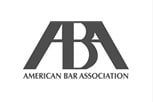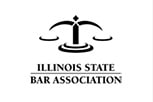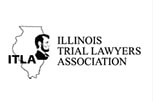New Illinois Supreme Court Rule Allows Jurors to Question Witnesses

Under a new rule that was adopted by the Illinois Supreme Court on April 3, 2012, jurors will be permitted to submit written questions to be answered by witnesses at trial. The trial judge will have discretion whether to accept or reject submitted questions, on a case-by-case basis. Judges who opposed adoption of this new rule are concerned that this rule will cause considerable delay to the length of trials. However, the majority of judges who favored adoption of this rule believe that this rule will help jurors pay closer attention and better understand the facts of a case.
Moreover, the adoption of this rule, has brought about a change in the instructions read to a jury prior to the commencement of a civil trial. This change became effective on July 1, 2012. Specifically, IPI 1.01 now reads, in part: “…During this trial, you may be permitted to ask questions of witnesses, but you must follow the procedures that I describe:
If you have a question for a witness and you believe the answer would be helpful to you in understanding the case, then after the lawyers have completed their questions, but before that witness is excused, I will give you a chance to submit your question in writing.
I will have you write your qeustion on a piece of paper and hand it to the bailiff. You should now write your name or juror number with the question. Also, you should not discuss your questions with your fellow jurors at this time.
You may submit on or more questions or no question at all. It is up to you. Please keep in mind, though, that you should only ask a question if you think it is important to your ability to decide the issues in this case fairly. You should be sure you are asking a question and not making a comment. You should not use your questions to argue with a witness or to express opinions about a witness’ testimony. Your role is to be an impartial fact-finder. The purpose of your question should be to clarify testimony that you have not understood or that has failed to address a factual question that you believe is important.
After the bailiff has collected the pieces of paper and given them to me, I will decide whether the law allows the queston to be asked of the witness. Not all questions can be asked or asked using wording that was submitted. The rules of evidence might not permit me to ask your question. You shall not concern yourself with the reason for the exclusion or modification of any quesiton submitted. If I cannot ask your question or if I rephrase it, please do not be offended, and do not let it affect your judgment of the evidence or the witness in any way.
If the question is allowed, I will ask the question of the witness and the attorneys may then ask some follow-up questions. Please do not speak directly to me, the lawyers, or the witnesses.”




